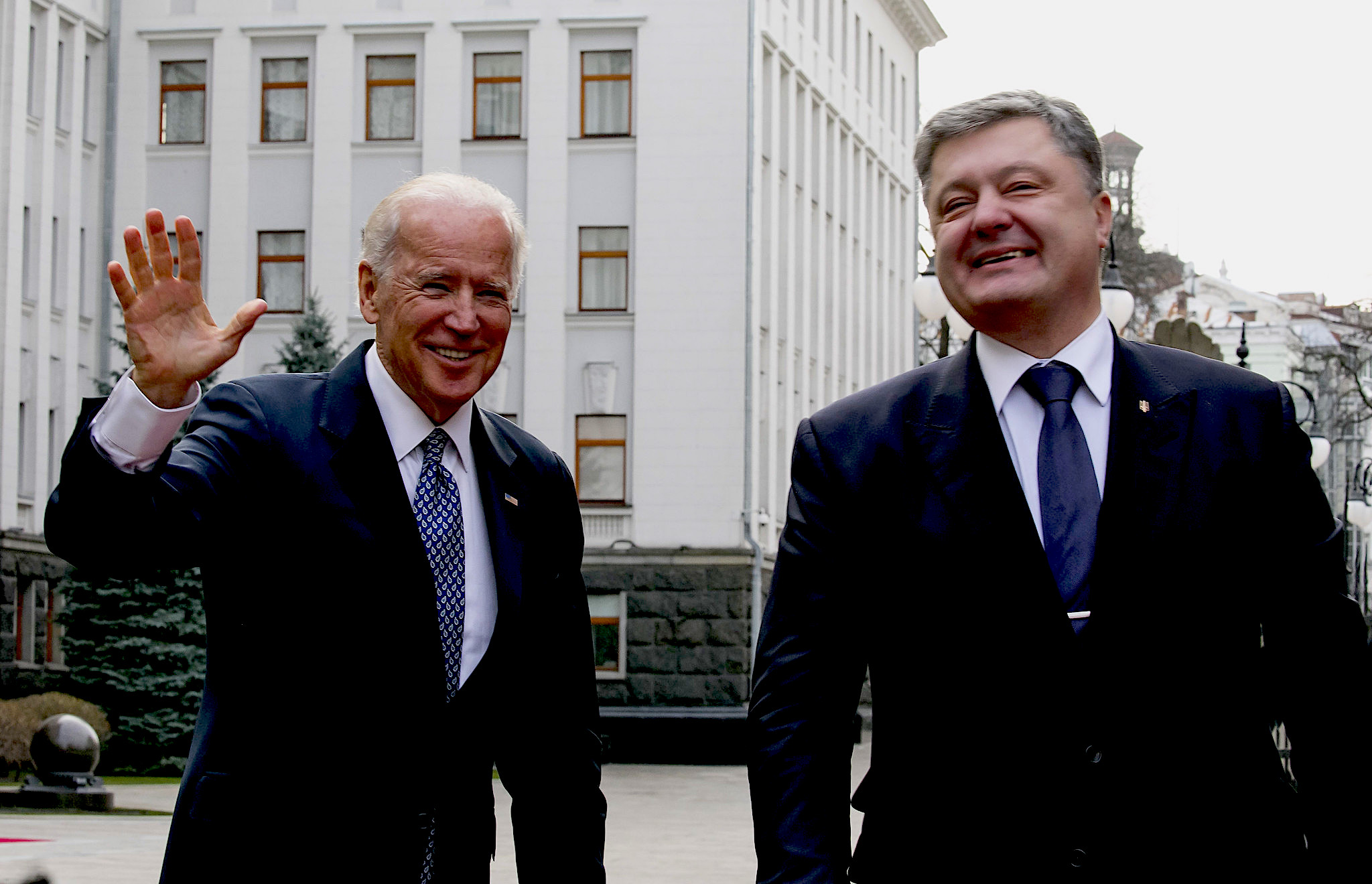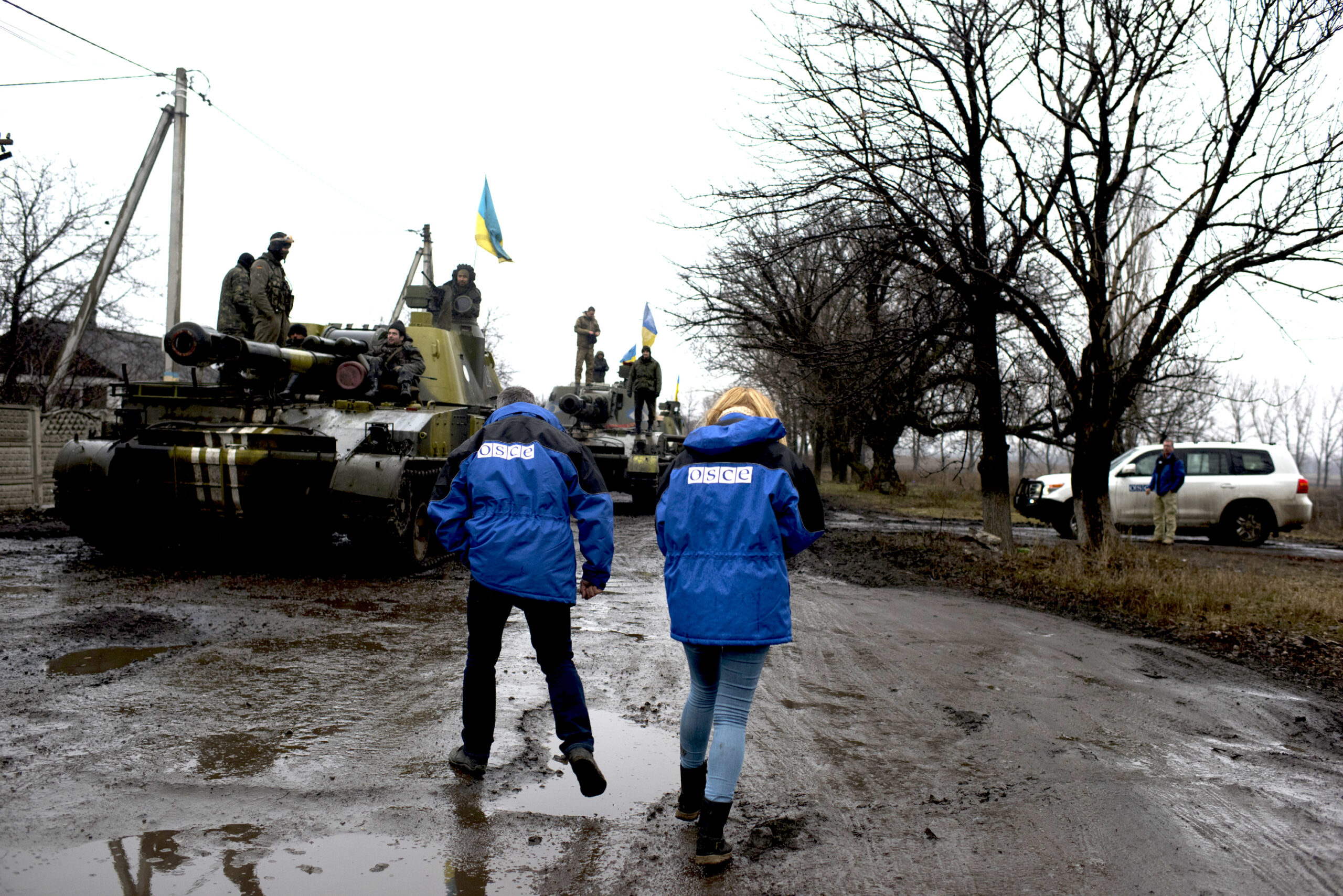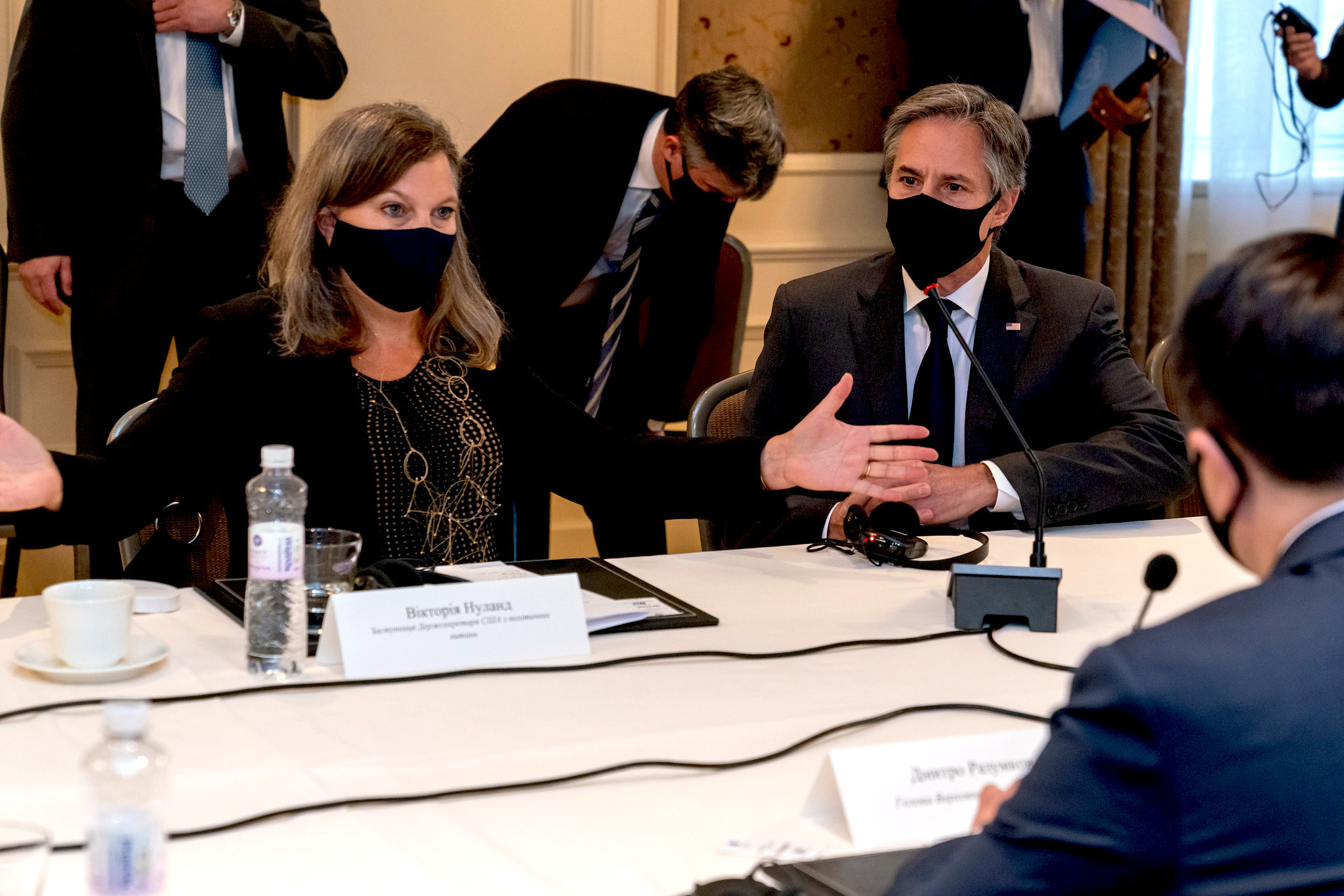
The Biden administration’s insistence on NATO enlargement has actually made Ukraine a victim of mistaken and unreachable U.S. military goals, writes Jeffrey D. Sachs.
By Jeffrey D. SACHS
George Orwell composed in 1984that “Who manages the past controls the future: who manages the present controls the past.”
Governments work non-stop to distort public understandings of the past. Concerning the Ukraine War, the Biden administration has repeatedly and incorrectly claimed that the Ukraine War began with an unprovoked attack by Russia on Ukraine on Feb. 24, 2022.
In reality, the war was provoked by the U.S. in manner ins which leading U.S. diplomats anticipated for years in the lead-up to the war, meaning that the war might have been avoided and must now be stopped through settlements.
Acknowledging that the war was provoked assists us to understand how to stop it. It doesn’t validate Russia’s invasion. A far better method for Russia might have been to step up diplomacy with Europe and with the non-Western world to describe and oppose U.S. militarism and unilateralism.
In truth, the ruthless U.S. push to expand NATO is extensively opposed throughout the world, so Russian diplomacy instead of war would likely have worked.
2 Main Provocations
The Biden team uses the word “unprovoked” incessantly, most just recently in Biden’s major speechon the first-year anniversary of the war, in a current NATO statement, and in the most current G7 declaration.
Mainstream media friendly to Biden merely parrot the White Home. The New York Timesis the lead offender, describing the invasion as “unprovoked” no fewer than 26 times, in 5 editorials, 14 opinion columns by NYTwriters, and 7 guest op-eds.
[Related: Caitlin Johnstone: Unprovoked!]
There were in reality two main U.S. provocations.
The first was the U.S. intention to expand NATO to Ukraine and Georgia in order to surround Russia in the Black Sea area by NATO nations (Ukraine, Romania, Bulgaria Turkey, and Georgia, in counterclockwise order).
The second was the U.S. role in setting up a Russophobic regime in Ukraine by the violent overthrow of Ukraine’s pro-Russian president, Viktor Yanukovych, in February 2014. The shooting war in Ukraine began with Yanukovych’s topple nine years earlier, not in February 2022 as the U.S. federal government, NATO, and the G7 leaders would have us think.
Biden and his diplomacy team refuse to talk about these roots of the war. To acknowledge them would undermine the administration in three ways.

Dec. 7, 2015: U.S. Vice President Biden consults with Ukrainian President Petro Poroshenko in Kiev.(U.S. Embassy Kyiv, Flickr)
First, it would expose how the war could have been avoided, or stopped early, sparing Ukraine its present destruction and the U.S. more than $100 billion in expenses to date.
Second, it would expose Biden’s individual function in the war as an individual in the overthrow of Yanukovych, and prior to that as a staunch backer of the military-industrial complex and very early supporter of NATO enlargement.
Third, it would push Biden to the negotiating table, undermining the administration’s ongoing push for NATO expansion.
Check the Archives
The archivesshow irrefutably that the U.S. and German federal governments consistently assured to Soviet President Mikhail Gorbachev that NATO would stagnate “one inch eastward” when the Soviet Union dissolved the Warsaw Pact military alliance.
Nonetheless, U.S. planning for NATO expansion started early in the 1990s, well before Vladimir Putin was Russia’s president. In 1997, national security professional Zbigniew Brzezinski spelled outthe NATO expansion timeline with amazing accuracy.
U.S. diplomats and Ukraine’s own leaders understood well that NATO enlargement could cause war. The U.S. scholar-statesman George Kennan called NATO augmentation a “fateful error,” composing in The New York Timesthat,
“Such a decision might be anticipated to inflame the nationalistic, anti-Western and militaristic tendencies in Russian viewpoint; to have a negative result on the advancement of Russian democracy; to bring back the environment of the cold war to East-West relations, and to impel Russian diplomacy in instructions extremely not to our taste.”
President Costs Clinton’s Secretary of Defense William Perry thought about resigning in protest against NATO enlargement. In thinking back about this crucial moment in the mid-1990s, Perry said the followingin 2016:
“Our first action that actually set us off in a bad instructions was when NATO started to broaden, bringing in eastern European nations, some of them bordering Russia. At that time, we were working carefully with Russia and they were beginning to get utilized to the idea that NATO might be a good friend rather than an enemy … but they were really uneasy about having NATO right up on their border and they made a strong appeal for us not to proceed with that.”
In 1998, William Burns, then the U.S. ambassador to Russia and now the C.I.A. director, sent out a cable televisionto Washington warning at length of severe threats of NATO enhancement:
“Ukraine and Georgia’s NATO goals not only touch a raw nerve in Russia, they engender serious concerns about the repercussions for stability in the region. Not just does Russia perceive encirclement, and efforts to weaken Russia’s influence in the area, however it also fears unforeseeable and unrestrained repercussions which would seriously impact Russian security interests. Specialists tell us that Russia is especially stressed that the strong departments in Ukraine over NATO subscription, with much of the ethnic-Russian neighborhood against membership, could cause a major split, involving violence or at worst, civil war. In that possibility, Russia would have to decide whether to intervene; a decision Russia does not wish to need to face.”

OSCE keeping track of the motion of heavy weaponry in Eastern Ukraine, March 2015.(OSCE, CC BY 2.0, Wikimedia Commons)
Ukraine’s leaders knew plainly that pushing for NATO enhancement to Ukraine would indicate war. Previous Zelensky adviser Oleksiy Arestovych stated in a 2019 interview“that our cost for joining NATO is a huge war with Russia.”
Throughout 2010-2013, Yanukovych pushed neutrality, in line with Ukrainian popular opinion. The U.S. worked covertly to topple Yanukovych, as caught clearly in the tapeof then U.S. Assistant Secretary of State Victoria Nulandand U.S. Ambassador Geoffrey Pyatt planning the post-Yanukovych government weeks prior to the violent overthrow of Yanukovych.
Nuland explains on the call that she was coordinating closely with then Vice President Biden and his nationwide security adviser, Jake Sullivan, the same Biden-Nuland-Sullivan group now at the center of U.S. policy vis-à-vis Ukraine.

Under Secretary of State Victoria Nuland and Secretary of State Antony Blinken meeting with members of Ukraine’s Rada in Kiev, Might 6, 2021. (State Department/Ron Przysucha)
After Yanukovych’s overthrow, the war broke out in the Donbass, while Russia declared Crimea. The brand-new Ukrainian federal government appealed for NATO membership, and the U.S. armed and assisted restructure the Ukrainian army to make it interoperable with NATO. In 2021, NATOand the Biden administrationhighly recommitted to Ukraine’s future in NATO.
In the immediate lead-up to Russia’s invasion, NATO enhancement was center stage. Putin’s draft NATO-Russia Treaty(Dec. 17, 2021) required a halt to NATO enhancement.
Russia’s leaders put NATO enhancement as the cause of war in Russia’s National Security Council meeting on Feb. 21, 2022. In his address to the countrythat day, Putin declared NATO enlargement to be a main reason for the invasion.
Historian Geoffrey Roberts just recently composed:
“Could war have been prevented by a Russian-Western deal that halted NATO growth and neutralised Ukraine in return for strong guarantees of Ukrainian self-reliance and sovereignty? Quite potentially.”
In March 2022, Russia and Ukraine reported progress towards a fast negotiated end to the war based upon Ukraine’s neutrality. According to Naftali Bennett, former prime minister of Israel, who was a conciliator, a contract was close to being reached prior to the U.S., U.K. and France obstructed it.
While the Biden administration declares Russia’s invasion to be unprovoked, Russia pursued diplomatic options in 2021 to prevent war, while Biden declined diplomacy, insisting that Russia had no state whatsoever on the question of NATO enhancement. And Russia pressed diplomacy in March 2022, while the Biden team once again obstructed a diplomatic end to the war.
By recognizing that the question of NATO augmentation is at the center of this war, we understand why U.S. weapons will not end this war. Russia will escalate as essential to prevent NATO augmentation to Ukraine. The key to peace in Ukraine is through settlements based on Ukraine’s neutrality and NATO non-enlargement.
The Biden administration’s persistence on NATO enhancement to Ukraine has actually made Ukraine a victim of misconceived and unattainable U.S. military aspirations. It’s time for the justifications to stop, and for negotiations to restore peace to Ukraine.
Common Dreams via consortiumnews.com

